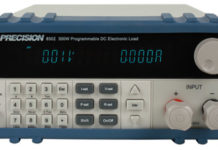The R&S®RTO-B1 MSO option turns the R&S®RTO oscilloscopes into fast, precise and easy-to-use mixed signal oscilloscopes (MSO).
- MSO option enhances analysis capabilities of the R&S®RTO oscilloscopes
- More signal details thanks to high time resolution across the entire memory depth
- Reliable triggering on signal events
- High acquisition and analysis rate for fast fault finding
- Straightforward display of digital signals
- Comprehensive processing and analysis functions
- Analysis of serial protocols, even with digital channels
- Low test point loading due to active probe solution
Features & Benefits
-
MSO option enhances analysis capabilities of the R&S®RTO oscilloscopes
Mixed signal oscilloscopes are hybrid test instruments that combine the measurement capabilities of digital storage oscilloscopes with the analysis capabilities of logic analyzers.
The R&S®RTO-B1 MSO option offers 16 additional digital channels for installation in any R&S®RTO base unit. -
More signal details thanks to high time resolution across the entire memory depth
With a sampling rate of 5 Gsample/s, the R&S®RTO-B1 option provides a maximum time resolution of 200 ps for all digital channels. This sampling rate is available across the entire memory depth of 200 Msample. As a result, the MSO option is even capable of detecting critical events such as narrow, widely separated glitches.
-
Reliable triggering on signal events
The digital channel resolution of 200 ps makes these channels a precise trigger source.
The R&S®RTO-B1 offers numerous trigger types for debugging and analysis, such as Edge, Width, Pattern and Serial Pattern. These triggers can be combined with HOLDOFF conditions. For the trigger source, the user can select individual digital channels, bus signals or any logical combination of digital channels by applying logic operations such as AND, OR or XOR.
-
High acquisition and analysis rate for fast fault finding
The hardware-based signal processing of the digital measurement waveforms extends from acquisition and triggering to analysis functions such as cursor functions and measurements, and even includes the visualization of the results. Parallel processing of all digital measurement signals allows an acquisition and analysis rate of max. 200 000 waveforms per second, ensuring that rare events are detected quickly and reliably.
-
Straightforward display of digital signals
The Rohde & Schwarz SmartGrid function supports the placement of digital channels on the screen. The digital channel activity remains visible in the signal icons independently of the acquisition state.
The binary signals from the individual digital channels obtained between two screen dumps are superimposed in the measurement diagram. In this way, the user gets an overview of the frequency of the binary states and of the edge transitions.
For a clear analysis of bus signals, the user can adapt bus data decoding to the bus format. With unclocked data buses, the logic state is determined for each sample. With clocked data buses, it is determined only for valid edges of the clock signal. The results are displayed in bus format, as a table or as an analog measurement waveform.
-
Comprehensive processing and analysis functions
To allow an efficient analysis of the measurement waveforms, the R&S®RTO-B1 MSO option offers a wide selection of automatic time measurements, including statistical evaluation. Automatic measurements can be performed on all digital channels and their logical combinations.
In addition to time measurements, the cursor also supports the decoding of the bus value at the cursor position. The history view function enables the user to access specific measurement waveforms in the acquisition memory and to apply analysis functions to them.
-
Analysis of serial protocols, even with digital channels
The protocols of serial interfaces such as I2C, SPI, UART/RS-232, CAN, LIN and FlexRay can also be triggered and decoded using the digital channels of the [[ pas:RTO-B1 ]] and the appropriate serial protocol options.
-
Low test point loading due to active probe solution
The 16 digital inputs are grouped into two logic probes with eight channels each. High input impedance combined with low input capacitance of 100 kΩ || 4 pF ensures high signal fidelity and low loading of the test points.
The correct assignment of the probes and the digital channels is supported by the following functions:
- Display of the assignment of channels D0 to D7 and D8 to D15 at the probe box
- Display of the activity for the individual measurement signals (static low, static high or toggle) with signal icons for the digital channels
Specifications
MSO option Digital channels 16 channels (2 logic probes) Input impedance 100 kΩ ± 2 % || ~4 pF (meas.) at probe tips Maximum input frequency signal with minimum input voltage swing
and hysteresis setting ‘small’400 MHz Sampling rate max. 5 Gsample/s on each channel Memory depth at max. sampling rate 200 Msample for every channel





















Comments are closed.